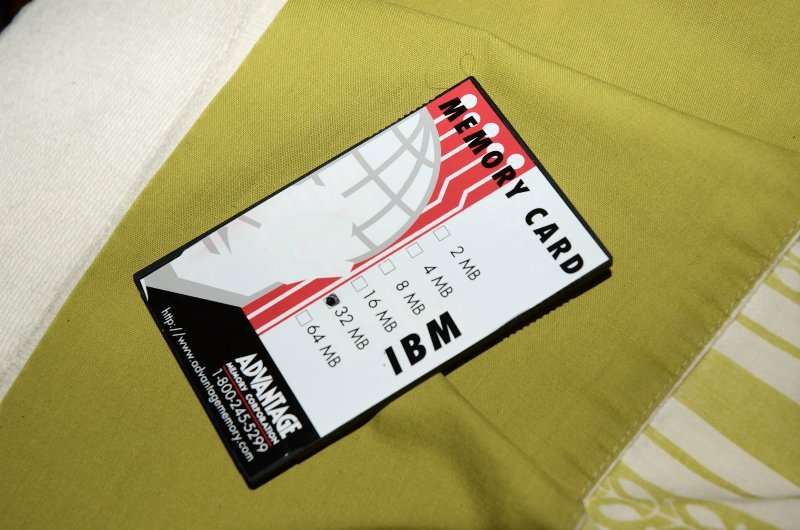Hihi
(just found this forum)
Got an HP 95LX recently and on the quest for a suitable card for it so I could have more than 200K of files on the machine I went hunting through eBay sellers as you do, found these:
http://cgi.ebay.co.uk/ws/eBayISAPI.dll?ViewItem&item=280511936885
$24.95 in that monopoly money that passes as currency across the pond (he also added a lower international postage option after I questioned the huge charge of $45.45 to the UK, so now $7.64 to get to the UK at least and it was here in 6 days)
These cards are not supported natively by the HP 95LX but they can be used with the Sundisk drivers
(they also work with the Olivetti Quaderno and the Sharp PC3000/3100 apparently)
I've been moving data (very slowly) onto mine at 19200 for the past couple of days, no errors yet
Drivers should be attached to this post if anyone wants to take the plunge, they'll work only with
memory mode capable PCMCIA flash cards and with the exception of the patched HP95 driver included are vendor locked to Sundisk/Sandisk
Hrm, seems I can't attach archives, or rar archives anyway
Grab driver from http://www.hidnet.org.uk/sundrv.rar if you want it
(just found this forum)
Got an HP 95LX recently and on the quest for a suitable card for it so I could have more than 200K of files on the machine I went hunting through eBay sellers as you do, found these:
http://cgi.ebay.co.uk/ws/eBayISAPI.dll?ViewItem&item=280511936885
$24.95 in that monopoly money that passes as currency across the pond (he also added a lower international postage option after I questioned the huge charge of $45.45 to the UK, so now $7.64 to get to the UK at least and it was here in 6 days)
These cards are not supported natively by the HP 95LX but they can be used with the Sundisk drivers
(they also work with the Olivetti Quaderno and the Sharp PC3000/3100 apparently)
I've been moving data (very slowly) onto mine at 19200 for the past couple of days, no errors yet
Drivers should be attached to this post if anyone wants to take the plunge, they'll work only with
memory mode capable PCMCIA flash cards and with the exception of the patched HP95 driver included are vendor locked to Sundisk/Sandisk
Hrm, seems I can't attach archives, or rar archives anyway
Grab driver from http://www.hidnet.org.uk/sundrv.rar if you want it


